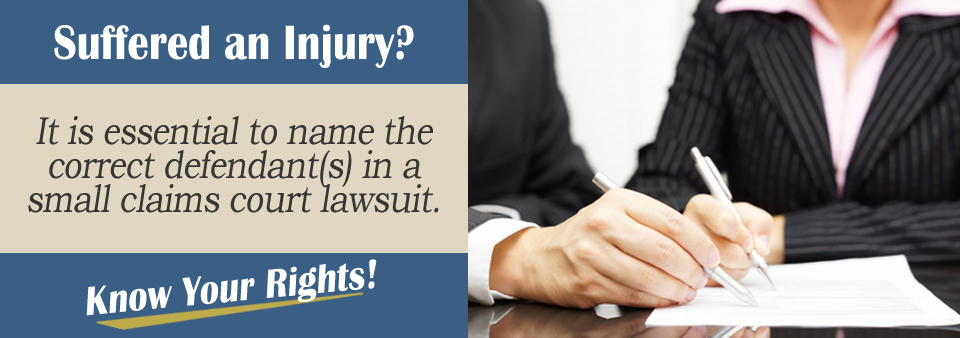Accidents can happen at any time and may happen to the most careful of people. If you are not to blame for the accident but have been injured you may be able to make a claim for compensation against whoever was responsible. Injuries can prove to be very expensive as often the accident can happen without any prior warning.
In the event that you have been injured and have tried to negotiate with the party at fault without success, you may need to take the case to court. Often there are times when compensation claims that involve relatively small amounts (e.g. less than $5,000) may be solved by using a small claims court. Even with the relatively less complex process in a small claims court, you may find that it is easier to use the expertise of a personal injury attorney.
The Small Claims Court Process
You may decide to file a lawsuit in a small claims court if:
- The claim is for a relatively small amount (the actual amount will depend on the state you are filing in, but a figure of $5,000 can be used as a typical maximum)
- The claim is for monetary compensation only
- Mediation or direct negotiation has been unsuccessful
- You do not need to ask for discovery, i.e. information which is relevant to the case, from the defendant
- The time of the lawsuit that is being filed is within a specified period after the injury happened. This time period again depends on the individual state’s statute of limitations, but typically is three years if the defendant is a private individual or organization, but usually a lot less if the defendant is a government agency or department

Whether you decide to file in a small claims court or opt for a regular civil court is up to you and this is where the advice of a personal injury attorney can be invaluable. There are benefits and disadvantages of each method. Some of the advantages of a small claims court, if you think that your case is quite clear cut, is that it is cheaper, quicker and simpler than using a regular civil court. You may find that you can represent yourself without needing to use an attorney, although the latter is preferable.
The main steps involved in filing a lawsuit in a small claims court are as follows:
- File the relevant complaint form with the district court.
- Pay the court fee.
- The court issues a “write of summons.” This is a formal way that the named defendant or defendant are notified that they are being sued.
- The defendant(s) notifies the court that they recognize that they have been issued with a summons.
The small claims court then decides when the case is heard. This can be quite quick and may be within 60 days of the time at which you submitted your claim.
Importance of Correct Naming of the Defendant
It is absolutely essential that the correct defendant is named in the lawsuit. The fact that you are taking the matter to court probably means that you feel certain who was to blame for the accident that caused your injuries, but you should still be careful that all those involved should be named. Naming the defendant is more complicated if a business or government department is involved as a single individual is not involved alone, even if an individual as well as a business or government agency is thought to share the blame.
Using an Attorney
Even if bringing a case before a small claims court does not mean that you have to use an attorney to represent you, it may still be advisable, especially if the circumstances are a little more complex or if you feel that your negotiating skills need help. An experienced personal injury attorney will be able to advise you on what evidence should be made available and what amount could be asked for as compensation.